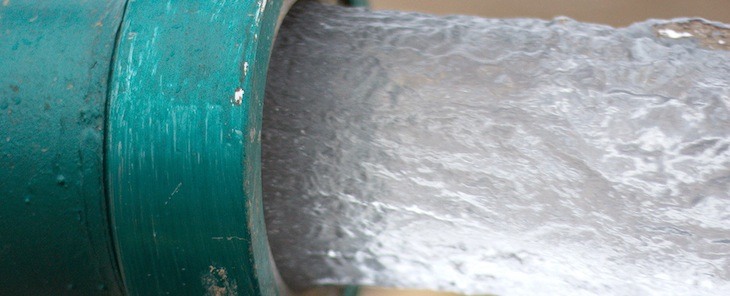Voters to decide payment options for sewer upgrades in Walnut Ridge
by March 15, 2018 12:52 pm 847 views

The Walnut Ridge sewer treatment facility is in desperate need of repairs, and Mayor Charles Snapp said the city’s sewer and water lines will need significant upgrades in the coming years.
The Arkansas Department of Environmental Quality has cited the city numerous times during the past several years, and the city recently had to pay a $7,000 fine for non-compliance. ADEQ and the city agreed to a corrective action order (CAO) that includes a plan to repair the system.
There are two options to pay for the $5 million facility upgrade and other sewer and water line improvements. Every residential and commercial customer with a water meter may have up to $13 added to their bills each month, or voters may approve two separate sales tax increases.
One tax increase measure is a three-eighths of a cent that would go directly toward the construction of a new treatment facility. It would sunset in 42 years. The other five-eighths of a cent increase would be used for sewer and water system maintenance in compliance with the CAO, asphalt upgrades, sanitation and mosquito control. If this sales tax increase is passed, the $12 per month per customer sanitation charge would be removed from customers’ bills, along with the $1.50 mosquito coverage charge.
City voters will decide on the tax bumps during the May 22 primary election. There was a push to hold a special election, but voting on the two measures during the primary will save money and allow a greater number of voters to weigh in, the mayor said.
If the two taxes are approved, it’s estimated Walnut Ridge residents will in 2019 save a combined $750,000 from the rescinded sanitation and mosquito fees and the fees that would have to be imposed if the tax hikes are rejected, Snapp said.
“We’ve been working on this for some time. It’s a problem that we have to fix one way or the other. The sales tax increase will allow our infrastructure to grow. We want to let the voters decide,” Snapp said.
The project could be paid for with a loan from the United States Department of Agriculture Rural Development. The funding stream must have it paid back in 40 years, according to the agency. A contingency fund to repair potential sewer line degrades during the life of the loan also must be established. ADEQ has given the city until April to formulate a plan to deal with these issues, Snapp said.
Walnut Ridge is the county seat in Lawrence County and is its largest city with approximately 5,300 residents. It accounts for about half the county’s sales tax base, and it has a total $0.10 per dollar sales tax. Each cent of local sales tax generated $884,000 in sales tax revenue in 2017. The city’s 2018 budget is about $2.3 million, and the city has 32 employees, a 20% decrease since Snapp took office in 2015. Snapp serves also as the city’s street and parks director, a previously salaried position.
“We’re doing more with less people,” the mayor said.
The city made a strategic error when it built its sewer treatment center back in 1994, the mayor believes. City officials opted for the cheapest option, a system with many mechanical, moving parts, Snapp said. Within a few years, the system began to degrade and leaks began to spring. Holes began to develop in sewer lines, and drains began to stop up.
Workers recently had to repair a 200-foot long sewer pipe on Old Pocahontas Road after it collapsed from a myriad of holes. Throughout the years, plumbers have punched holes in pipes throughout the city. Many just used tin to cover the hole instead of using an actual plug, Snapp said. The tin caps allow dirt and water to leak into the system and when it reaches the treatment facility it accelerates an already deteriorated system, he said.
“Obviously, our lines won’t last 40 years,” Snapp said. “We have to be proactive.”
If voters reject the sales tax increases, the city will have no choice but to add fees to water bills, Snapp said. The sales tax option will allow the city to maintain its infrastructure for the next 40 years. Snapp also said a sales tax has an added bonus: Visitors who buy goods and services in the city will help pay for the infrastructure improvements.
Walnut Ridge has a 3.2% unemployment rate, and if houses and multi-family housing units are built, the city will grow, Snapp said. Its proximity to Jonesboro makes it a candidate to be a bedroom community for the region’s largest city. Infrastructure improvements will be critical to maintain growth and to continue to attract new job creators to the city, he said.
“This will give us the capability to shore up our infrastructure for the next 40 years. It will allow us to grow three or four times bigger than we are right now. It seems like a no-brainer to me,” Snapp said.
